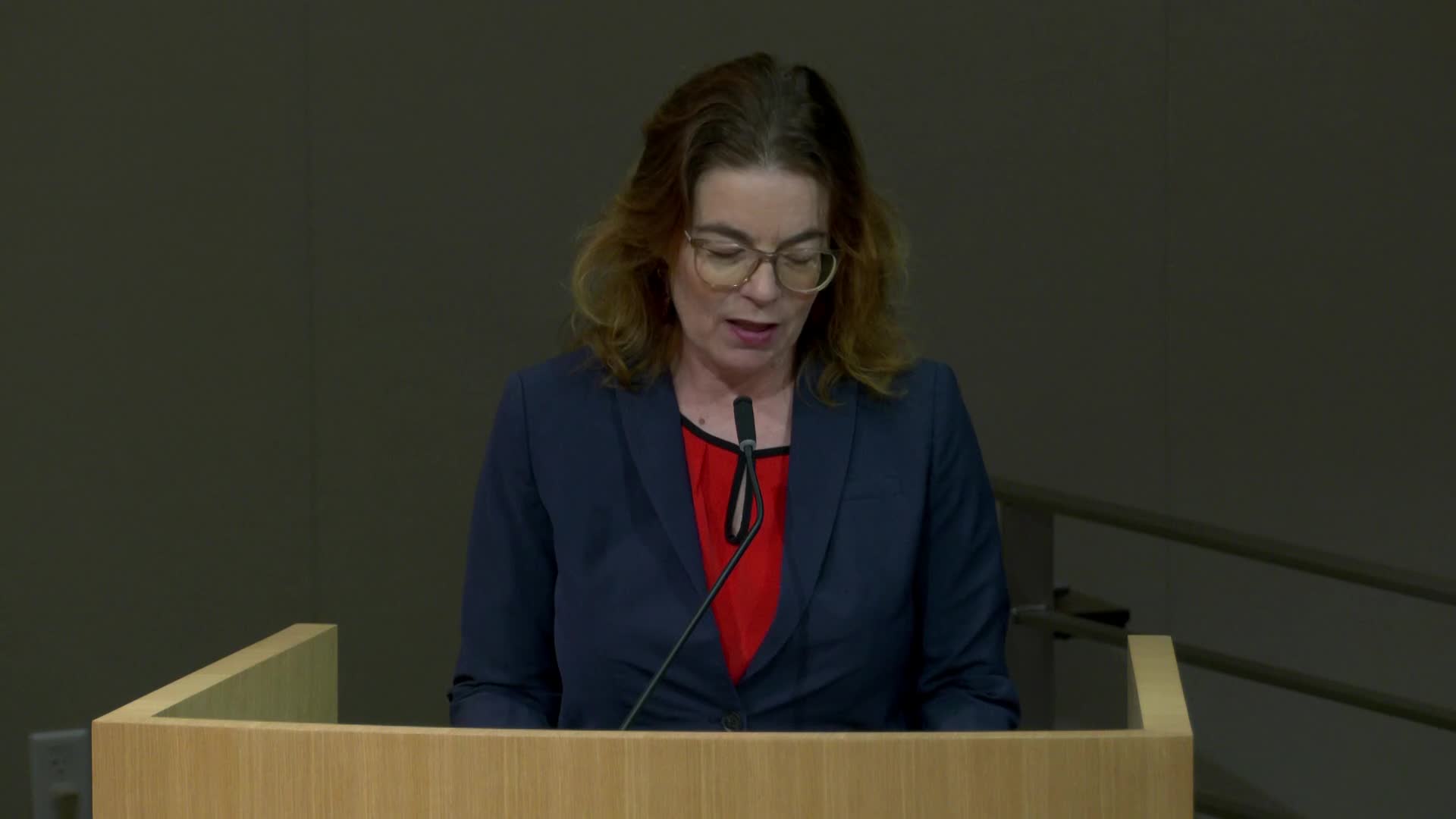California Bill Aims to Strengthen Ethnic Studies Amid Rising Concerns
August 12, 2024 | Appropriations, Standing Committees, California State Senate, Senate, Legislative, California
This article was created by AI summarizing key points discussed. AI makes mistakes, so for full details and context, please refer to the video of the full meeting. Please report any errors so we can fix them. Report an error »

In a recent government meeting, Assembly Bill 2918 (AB 2918) was presented as a legislative priority aimed at enhancing ethnic studies in California schools. Jointly authored by Assembly members Addis and Zipper, and supported by State Superintendent Tony Thurmond and the Jewish Public Affairs Committee of California, the bill seeks to ensure that ethnic studies curricula are culturally competent and inclusive, providing students with both \"mirrors\" and \"windows\" into diverse histories and experiences.
Assembly member Addis emphasized the importance of creating safe and affirming educational environments for all students, particularly highlighting the need for Jewish students to feel represented and secure in their learning spaces. He noted that some existing ethnic studies curricula have inadvertently fostered environments that are not inclusive for Jewish students, prompting the need for AB 2918 to rectify these issues.
The bill proposes to activate existing guardrails established under AB 101, which aims to prevent bias and discrimination in educational content. It also emphasizes the importance of multiculturalism and the accurate representation of historically marginalized communities. Notably, the bill does not aim to erase any part of California's diverse history but rather to enhance the educational framework to ensure all students see themselves reflected in their studies.
Assembly member Zipper further elaborated on the bill's provisions, which include transparency measures allowing parents to review and provide input on ethnic studies curricula before adoption. However, due to ongoing discussions with stakeholders, these transparency provisions were amended out of the bill to facilitate further collaboration.
The meeting also featured testimonies from various community members and organizations, many of whom expressed strong support for the bill, citing personal experiences with antisemitism and the need for protective measures in educational settings. Advocates argued that the bill's guardrails are essential to prevent biased content from being introduced into classrooms, ensuring that ethnic studies serve their intended purpose of fostering understanding and respect among diverse communities.
Opposition to the bill was voiced by representatives from the California Teachers Association, who argued that the bill could impose unnecessary hurdles to the implementation of ethnic studies and create confusion among educators. They expressed concerns that the additional scrutiny could undermine existing successful programs.
Ultimately, AB 2918 was moved to suspense, pending further analysis of its fiscal implications and potential amendments. The discussions highlighted the ongoing challenges and complexities surrounding the implementation of ethnic studies in California, reflecting broader societal conversations about representation, inclusivity, and the role of education in addressing historical injustices.
Assembly member Addis emphasized the importance of creating safe and affirming educational environments for all students, particularly highlighting the need for Jewish students to feel represented and secure in their learning spaces. He noted that some existing ethnic studies curricula have inadvertently fostered environments that are not inclusive for Jewish students, prompting the need for AB 2918 to rectify these issues.
The bill proposes to activate existing guardrails established under AB 101, which aims to prevent bias and discrimination in educational content. It also emphasizes the importance of multiculturalism and the accurate representation of historically marginalized communities. Notably, the bill does not aim to erase any part of California's diverse history but rather to enhance the educational framework to ensure all students see themselves reflected in their studies.
Assembly member Zipper further elaborated on the bill's provisions, which include transparency measures allowing parents to review and provide input on ethnic studies curricula before adoption. However, due to ongoing discussions with stakeholders, these transparency provisions were amended out of the bill to facilitate further collaboration.
The meeting also featured testimonies from various community members and organizations, many of whom expressed strong support for the bill, citing personal experiences with antisemitism and the need for protective measures in educational settings. Advocates argued that the bill's guardrails are essential to prevent biased content from being introduced into classrooms, ensuring that ethnic studies serve their intended purpose of fostering understanding and respect among diverse communities.
Opposition to the bill was voiced by representatives from the California Teachers Association, who argued that the bill could impose unnecessary hurdles to the implementation of ethnic studies and create confusion among educators. They expressed concerns that the additional scrutiny could undermine existing successful programs.
Ultimately, AB 2918 was moved to suspense, pending further analysis of its fiscal implications and potential amendments. The discussions highlighted the ongoing challenges and complexities surrounding the implementation of ethnic studies in California, reflecting broader societal conversations about representation, inclusivity, and the role of education in addressing historical injustices.
Don't Miss a Word: See the Full Meeting!
Go beyond summaries. Unlock every video, transcript, and key insight with a Founder Membership.
✓
Get instant access to full meeting videos
✓
Search and clip any phrase from complete transcripts
✓
Receive AI-powered summaries & custom alerts
✓
Enjoy lifetime, unrestricted access to government data
30-day money-back guarantee

